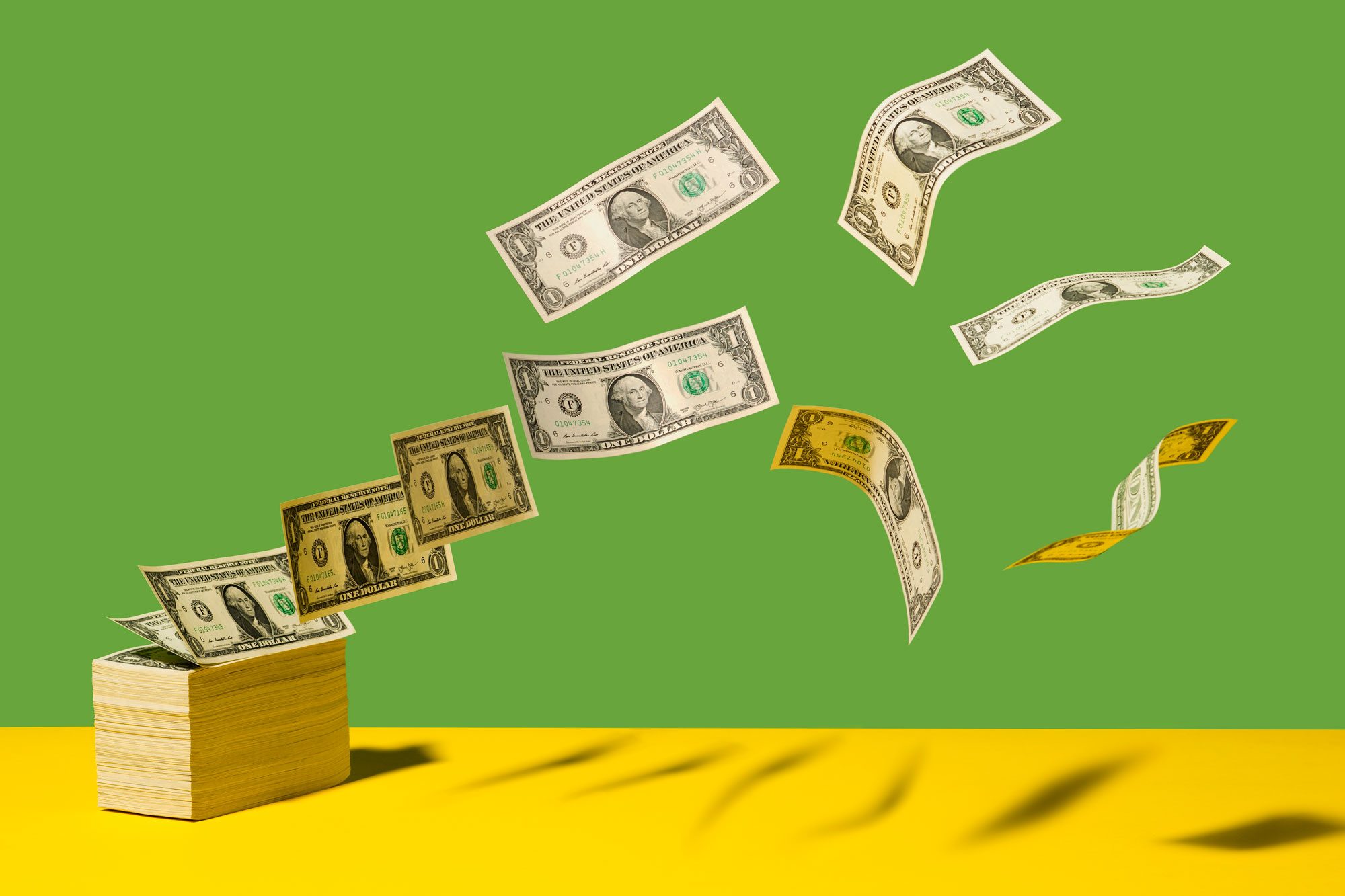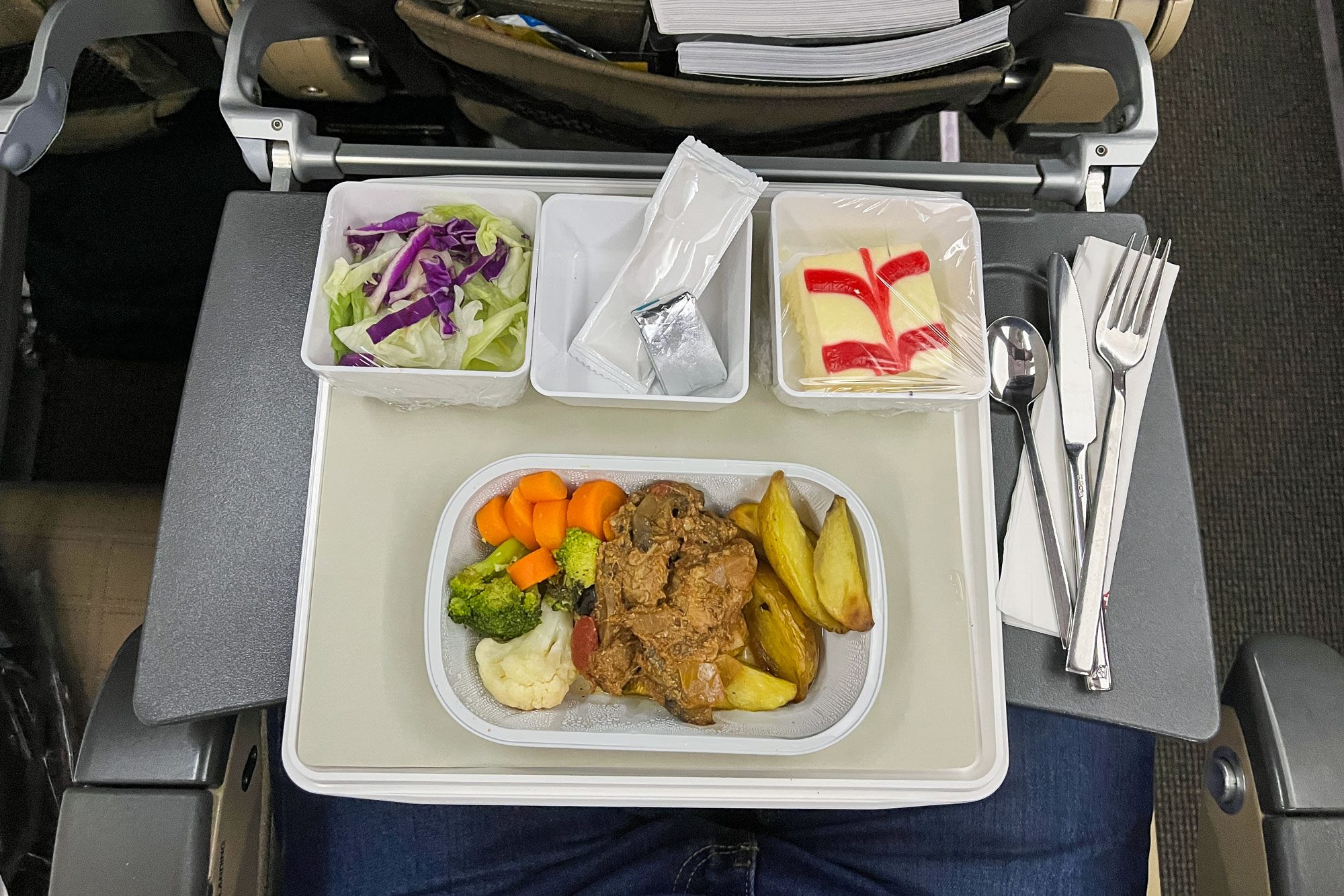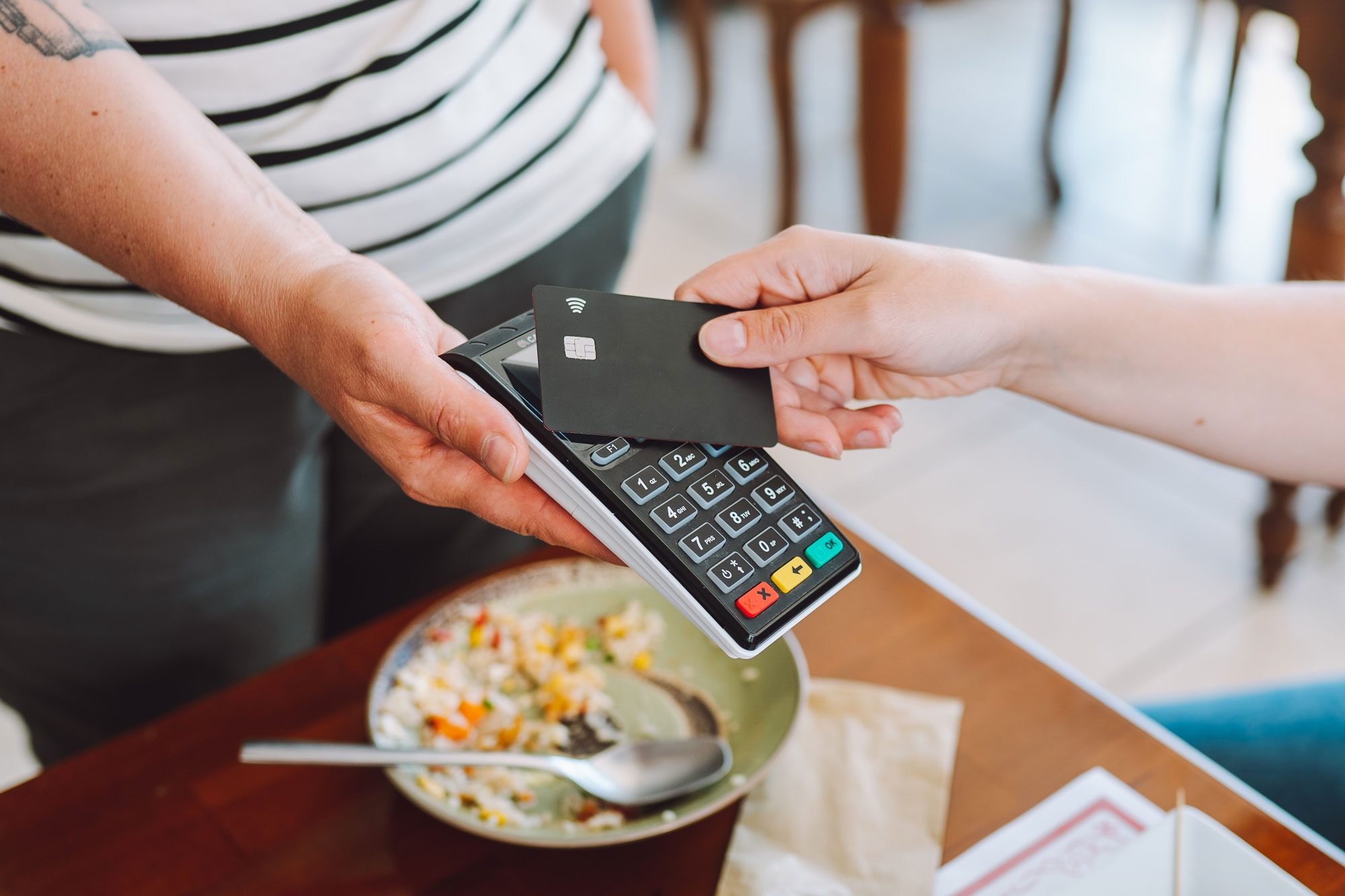This just might be more painful than inflation. We want our freebies back!

14 Things That Used to Be Free but Aren’t Anymore

If you feel like your bank account is draining more quickly than it used to, you’re not crazy. You really are paying more for everything these days—and even paying for stuff you used to get for free. Yes, you read that right. More and more stores are eliminating freebies that used to come standard with certain services to turn a bigger profit. That makes it even harder to save money … and makes us grumble.
Of course, businesses don’t owe their customers anything for free. But as someone who regularly negotiates down bills and tries to save money while shopping for pretty much everything, it kills me to have to pay for something that used to be free. I was curious just how pervasive this issue was, so I started keeping track of things that used to be free but aren’t anymore.
And here is that list. Many of these former freebies vary by region or retailer, and in some instances, you may not even realize a service will now cost you. After all, it’s not like businesses are advertising the fact that they’ve done away with freebies. But that doesn’t make it OK! Read on to find out which freebies are now a distant memory—or will be soon.
Get Reader’s Digest’s Read Up newsletter for more money, travel, tech, cleaning, humor and fun facts all week long.
Gift boxes
Back in the day, department stores would give you a sturdy gift box, complete with tissue paper, around the holidays to make gift-giving a cinch. Now, most stores charge for gift boxes if they even offer them at all. And online retailers like Amazon charge for everything from boxes or gift bags to a simple ribbon. Moreover, not all purchases are eligible for gift options, so you may be on your own regardless of your willingness to pay.
In-store gift wrapping

In addition to gift boxes, many stores once offered free gift wrapping—and even had their own gift-wrapping stations. It was beautiful! Today, if you do find a store that provides gift-wrapping services, you’ll likely be paying for it, especially if you’re shopping at a department store. At Nordstrom, for instance, you’ll have to pay $5 to have your Nordstrom purchase wrapped. Non-Nordstrom purchases can be wrapped for $15. If you’re purchasing a gift online, you can opt to add a $5 reusable fabric gift bag or DIY gift-box kit to your order.
| ♦ Pro tip |
| Some small businesses offer free gift-wrapping services, so it’s worth checking out your local shops for this freebie. |
Birthday freebies
There’s nothing like a free cup of coffee or complimentary dessert to celebrate your big day. But in recent years, stores and restaurants have been scaling back on birthday freebies. Some chains, like Dunkin’, now offer extra points to rewards members instead of a free beverage.
Grocery bags

In an effort to curb the use of plastic bags, more than 500 municipalities in 28 states had plastic-bag legislation in effect as of 2021. Additionally, 12 states have single-use plastic-bag bans. If your state still allows plastic bags, expect to pay for them. And if your state has a plastic-bag ban but offers paper bags, you can expect to pay for those too. I live in Connecticut, and here, we have to pay 10 cents per bag regardless of whether it’s paper or plastic.
To combat this issue, some stores sell reusable bags, which can cost anywhere from 99 cents for a cheap plastic tote to $6.99 for an insulated cooler bag. Yes, you’ll have to pay for this, but once you buy them, they’re yours to use and reuse for years to come.
Hotel amenities
Once upon a time, your hotel room rate covered everything associated with your stay, from your continental breakfast to the use of the hotel pool. In 1997, luxury hotels began charging “resort fees” to cover high-end amenities. Today, you’re likely to find some sort of fee tacked onto your bill whether you’re in a luxury resort or a budget-friendly hotel. Worst of all, you may actually be paying for less. For instance, I’ve been to several hotels that no longer offer daily cleaning or towels. If you’d like fresh towels, it could cost you a couple of dollars.
The reason behind the charges? The little note cards they leave in the rooms claim reducing daily housekeeping and fresh towels benefits the environment, but we suspect it’s more budget-related. Unfortunately, the only way to avoid these fees is to avoid the hotels that charge them.
Extra condiments
Want extra blue cheese for those wings? You may have to pay for it. Many restaurants, and even some fast-food chains, have started charging customers for extra condiments. Taco Bell, for instance, gives out just one packet of avocado verde salsa per item on its Cantina Chicken menu. But if you need additional salsa, expect to fork over 20 cents per packet. Sure, it may not seem like a lot, but it feels like you’re being nickeled and dimed. And when you’re being hit up for extra money at every turn, it adds up quickly.
Similarly, McDonald’s now charges 25 cents for extra sauce packets at some of its locations. According to McDonald’s, this is because a significant number of its restaurants are owned by franchisees, who are allowed to set their own prices and charge for extra sauces if they are not part of a meal option.
Air
No, not the air we breathe … yet. For now, at least, we’re talking about the air you put in your tires when you’re running low. Compressed air used to be free at many gas stations across the country but isn’t anymore—in fact, it may cost you as much as $1.50 to fill up your tires.
That said, in some states, including Connecticut and California, gas stations are required by law to provide free air to customers. California requires gas stations to provide free air to customers who have purchased fuel. In Connecticut, free air must be provided to the public during business hours regardless of whether or not they make a purchase.
Television
Here’s a little trip down memory lane (or a TV history lesson) for you: From the 1950s through the 1990s, TV was free. Then came a fee for basic cable, followed by tiered plans, bundles and cable packages that could cost upwards of hundreds of dollars every month. In the early 2000s, people began cutting the cord in favor of cheaper, more convenient, on-demand streaming services. Today, people spend an average of $552 a year on streaming services, which works out to around $46 a month. Feeling nostalgic for that simpler, freer time? We certainly are!
If you don’t want to shell out hundreds for cable, you may not have to. Depending on where you live, you may be able to use a TV antenna to receive local networks like ABC, CBS, Fox, NBC, PBS and Telemundo. And if you have children, you can download free apps like PBS Kids Video so they can watch their favorite shows. Just keep in mind that the offerings are limited.
In-flight meals

When you fly domestically, you’ll likely be offered a complimentary package of Biscoff cookies, granola or Sun Chips along with a soft drink. But up until 2001, many airlines were still offering free in-flight meals to travelers sitting in coach. Today, meals are typically reserved for long-haul flights and business and first-class passengers, if they’re offered at all. Other airlines offer snack boxes for a fee. For example, JetBlue has EatUp snack boxes for around $10 a pop.
If you prefer not to spend a small fortune on subpar snacks, pack your own food before you go. Here’s a list of food you’re allowed to take on a plane.
Disney World amenities
When I planned my last big Disney trip in 2019, I received a bevy of free goodies, including luggage tags, MagicBands and FastPasses. Today, a luggage tag costs $16.95, while each MagicBand will set you back anywhere from $35 to $65, depending on the style you choose. And don’t get me started on FastPasses or the new Lightning Lane passes. The price for the latter will vary depending on the park and the day, but they are expected to cost up to $450 for a single day!
Bank accounts
Banks are notorious for hefty overdraft fees, ATM fees and the like. But some banks charge service fees of up to $15 a month just to maintain your account! That’s $15 a month just for the privilege of keeping your money in your account. Think of it like rent for your money.
You can avoid these fees by making sure you have a no-fee checking account or by meeting certain criteria. The latter may include maintaining a minimum daily balance (which can range from $500 to $1,500), setting up direct deposit or completing a certain number of transactions each month.
Drink refills
I recently went to brunch with a friend who was visiting from out of town. In addition to our meals, we ordered coffee—nothing fancy, just plain, old drip coffee. We thought nothing of the waiter stopping at our table every so often to refill our cups. Then the bill came. We were charged for each cup of coffee, which added an extra $15 to our tab. Nope, those refills were not free, and this particular restaurant was not an outlier. In fact, more and more restaurants are doing away with free refills on soft drinks and coffee. If you’re surprised by your bill, speak to your server. If they didn’t inform you ahead of time that there would be a charge for each refill, you can ask that it be taken off your check. And if you want to avoid an awkward situation like this, make sure to ask before you order.
Paying with a credit card

Many people use credit cards to earn perks, but doing so can cost you. Some vendors may tack a surcharge onto your bill if you opt to pay with a credit or debit card. Many say that it helps offset the cost of processing credit card payments, or the fee a business is charged for each credit card transaction it processes. Rather than eat that cost, some businesses simply pass it on to their customers as a charge that can range anywhere from 1.5% to 3.5% of each transaction’s total. American Express has the highest rates, FYI, charging merchants an average of 2.3% to 3.5% per transaction.
During my last vacation, many local shops had begun adding a 3% surcharge to all credit card purchases. And sure, 3% of, say, a $40 purchase is only $1.20. But if you make several purchases in a day, those extra fees really add up.
The easiest way to avoid these surcharges is to pay cash. You can also ask local establishments or tradespeople if they’ll give you a cash discount—you’ll be surprised to discover how many of them will say yes! A few weeks ago, I had to replace my well pump and add a UV filtration system to my home. I saved a few hundred dollars by offering to pay cash. I saved another $250 recently by paying my daughter’s orthodontist in full and in cash after her appointment.
Deliveries
The next time you receive a delivery, whether it’s for goods or essentials like home heating oil, be sure to look carefully at your bill. That “free delivery” may not actually be free. Many companies are tacking on extra fees, like “fuel surcharges” or “public benefits charges,” in order to recoup some of their rising costs. In Connecticut, residents were recently hit with a public benefits charge that amounts to a percentage of their already high bill. My public benefits charges have ranged from $119 to $205 since July. Meanwhile, our refuse company began tacking on a quarterly $25 fuel surcharge. In some cases, you may be able to call and negotiate these extra charges, especially if you’re dealing with a local company that wants to keep your business.
Why trust us
At Reader’s Digest, we’re committed to producing high-quality content by writers with expertise and experience in their field in consultation with relevant, qualified experts. We rely on reputable primary sources, including government and professional organizations and academic institutions as well as our writers’ personal experiences where appropriate. We verify all facts and data, back them with credible sourcing and revisit them over time to ensure they remain accurate and up to date. Read more about our team, our contributors and our editorial policies.
Sources:
- McDonald’s: “Why do some restaurants charge for ketchup and some don’t?”
- Office of Legislative Research (Connecticut): “Free Air for Tires at Gas Stations”
- California Department of Food and Agriculture: “How to File a Consumer Complaint”
- Consumer Reports: “How to Get Better Indoor TV Antenna Reception”
- Forbes: “Streaming Trends for 2024: 44% Report Streaming Costs Increasing Over the Last Year”
- NerdWallet: “Credit Card Processing Fees: What Small Businesses Should Know in 2024”























